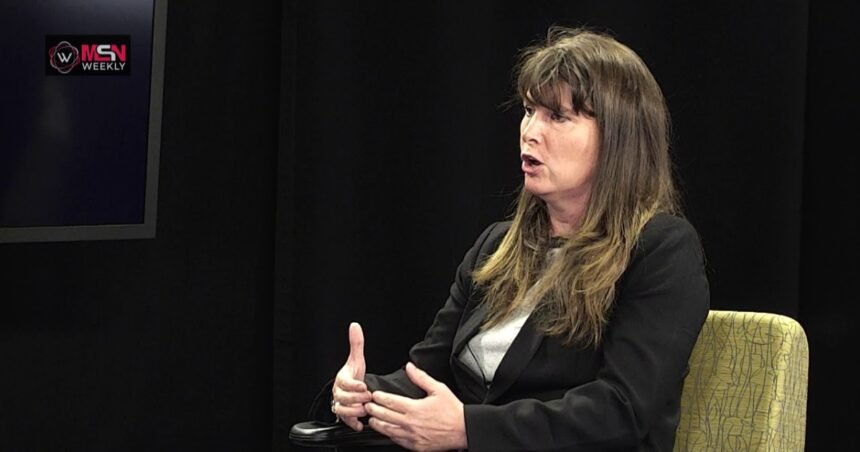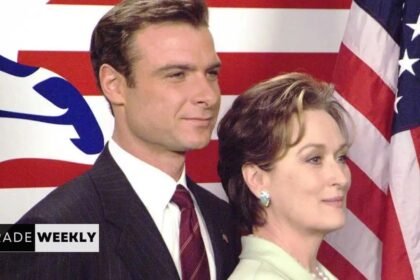Have you ever come across a book or scholarly article that completely changed the way you thought about the world? That is precisely what Diana Walsh Pasulka studies, particularly her fascinating investigation of the relationship between religion and UFO occurrences. However, what makes Diana Walsh Pasulka so influential, and who is she exactly? Let us explore her amazing life story and her contributions to religious studies.
Who is Diana Walsh Pasulka?
American author Diana Walsh Pasulka teaches religious studies at the University of North Carolina Wilmington. She put a lot of effort into pursuing her academic goals and graduated with degrees that prepared her for her job in religious studies. Curiosity about the unknown and a desire to push the limits of orthodox religious ideas characterized her early life and education.
Diana Walsh Pasulka has had a very successful academic career. She has devoted her professional life to teaching and studying religious phenomena as a professor at the University of North Carolina, Wilmington. Her work is distinguished by a distinctive fusion of contemporary interpretations with conventional religious studies, frequently exploring fields that are avoided by many academics.
Diana Walsh Pasulka Contributions
It is impossible to talk about Pasulka’s accomplishments without bringing up her important writings and publications. Her writings have had a lasting impact on the field of religious studies, and her research is broad. She is the author of multiple books and essays exploring the complex relationships between culture, religion, and the unexplained.
Pasulka’s writings have fundamentally changed how the modern world views religion. Her exploration of non-traditional subjects like UFO occurrences and their theological ramifications has created fresh opportunities for research and conversation. Her creative methodology has challenged readers to widen their viewpoints while also enriching the academic community.
Wellesley’s Alumnae Hall was renamed the Diana Chapman Walsh Alumnae Hall in Walsh’s honor after its 2010 renovation. The hall was originally constructed in 1923 but was cramped and inaccessible. Following its highly successful renovation, it is now home to a 1,000-seat auditorium and the college’s Theater Studies Department and is the site of many of the college’s most important events.
“American Cosmic”
Perhaps Diana Walsh Pasulka most well-known book is “American Cosmic: UFOs, Religion, and Technology.” She examines the intricate connection between UFO occurrences, technology, and religion in her ground-breaking work. A captivating blend of academic rigor, speculative thought, and personal tales, the book is a must-read for anybody with an interest in these overlapping subjects.
“American Cosmic” explores a wide range of profound and varied issues. Pasulka explores the ways in which encounters with UFOs are not merely contemporary events but have strong cultural and religious roots. She talks about how these encounters are impacted by technology and how this is leading to the emergence of new religious beliefs.
UFO phenomenon and Religion
Diana Walsh Pasulka investigation into the relationship between religion and UFO experiences is novel and contentious. According to her, UFO sightings are a contemporary version of prehistoric religious experiences. She finds similarities between stories from the present and historical narratives that imply a strong, underlying relationship between the two.
According to Diana Walsh Pasulka, UFO occurrences are profoundly ingrained in religious consciousness and the human psyche, not only being extraterrestrial encounters. She contends that the cultural and technological settings of these encounters impact how people perceive and understand them on an individual and societal level.
Pasulka’s Research on Technology and Religion
Pasulka’s study explores the ways in which religious rituals and beliefs are being altered by technology. She contends that new forms of religious community and experience are being created by technological innovations like the internet and digital media. These are not only surface-level modifications; rather, they are profound shifts in how people interact with and comprehend their faith.
In the future, Diana Walsh Pasulka sees an even closer integration of technology and faith. She contends that religious practices and beliefs will advance with technology, giving rise to hitherto unheard-of types of spirituality.








